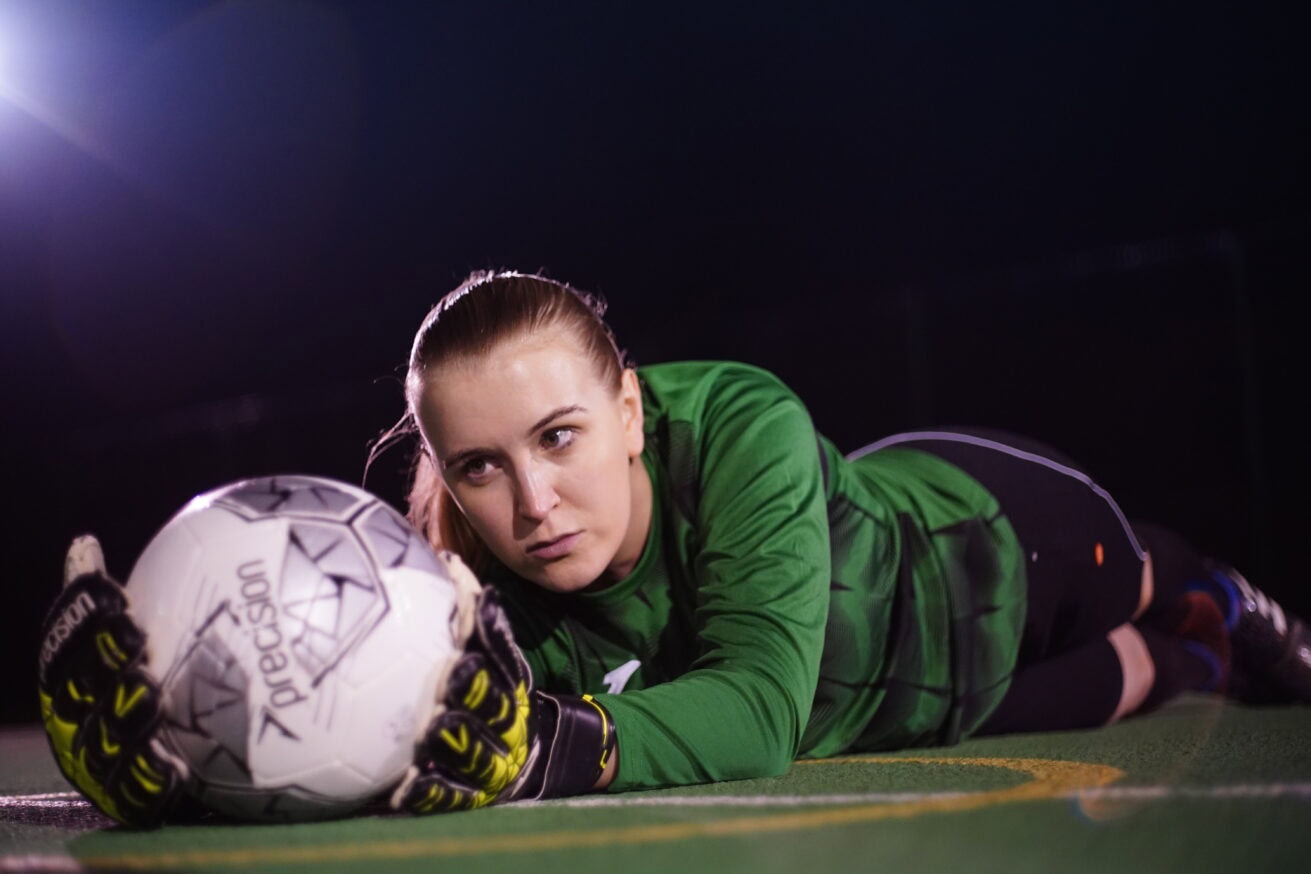Before moving to the UK, I had never watched a football – or, as I would’ve called it at the time, “soccer” – game in my whole life, and I had no real desire to do so. So, when I was paired with Kate Coulson to direct the first iteration of Lioness for a scratch night in November 2023, I never expected to find myself so fascinated with, and infuriated by, the inner-workings of this popular sport. In talking to Kate, developing this show from its infancy, I have come to realise that the world of football is so much more than just the “beautiful game” people refer to it as: it is a microcosm of a much wider scale issue: women and non-men have to work twice as hard, succeed twice as much, to get a fraction of the respect their male counterparts command.
This is a fact I have known my whole life, but it is something the world of football encapsulates with startling clarity. Each women’s football club has to be attached to a men’s team to obtain any kind of funding, and even then, it’s pennies. It doesn’t matter how good the team is, the vast majority of female footballers have part or full-time jobs outside of their football careers. One of my favorite moments – or I suppose, one of the moments I find most infuriating – in Lioness is when our main character, Marnie, talks about Nicola Hobbs, former keeper for England, who was a full-time firefighter while playing on the national level. She had to give up playing for Sheffield United in 2018 due to the impossibility of reconciling both work commitments and her playing career.

That same year, the average weekly salary for a male player for Sheffield United was £5,616.
Despite winning the Euros in 2022, female footballers in the UK are still paid only a fraction of their male counterparts. Even looking across the pond to the US, my home country, the women’s team (USWNT) has won three world championships, offers a maximum salary of $46,200 to its players, a number that doesn’t even come close to the US living wage for a full-time career. Meanwhile, a player on the US men’s team makes almost five times this amount at the low end. The US men’s team has never won a world cup.
This rift is not unique. In theatre directing, my chosen profession, more than three quarters of major productions of West End and off-West End scale are directed by men, and no woman had won the Tony for Best Director of a Play until Garry Hynes in 1998. Since then, there have only been five more.
This is not just a gap in pay. It’s a gap in respect.
Now I’m not gonna to sit here and claim that one 45-minute play about women’s football at the fringe is gonna solve every issue of gender inequality in the world, but I do think Lioness might do for some audience members what working on it has done for me: forced me to think about the ways gender inequality persists, even where we least expect it.
Lioness is at Greenside (Clover Studio), Edinburgh, 1 –23 August 2025 (not 10th, 17th). 12:40


















